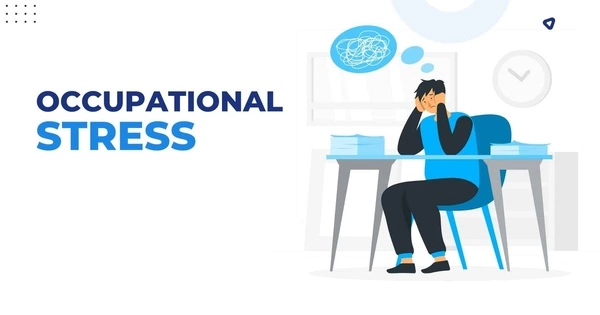Occupational stress is the physical, emotional, and mental strain that people endure as a result of their work or employment. It is work-related psychological stress. It refers to a long-term illness. It can be handled by identifying and addressing the sources of stress at work. It is a regular occurrence in the modern workplace and can be caused by a variety of circumstances.
Occupational stress can occur when employees do not feel supported by their bosses or coworkers, believe they have little influence over the work they do, or believe their efforts on the job are insufficient in comparison to the job’s rewards. It is a source of concern for both employees and employers because stressful work environments are linked to employees’ emotional well-being, physical health, and job performance.
Here are some key aspects of occupational stress:
- Workload: Workloads, deadlines, and unreasonable job demands can all add to stress. When people feel overwhelmed by the quantity of work they need to complete, their stress levels rise.
- Role Ambiguity: Uncertain employment expectations, ambiguous duties, or a lack of clarity regarding one’s obligations can all lead to stress. Employees may be anxious and tense because they are unsure what is expected of them.
- Lack of Control: Employees who believe they have little control over their job or decision-making processes may experience emotions of impotence and stress. Autonomy and a sense of control are essential for happiness.
- Interpersonal Conflicts: Workplace interactions and confrontations with coworkers or superiors can considerably add to stress. Emotional strain can be caused by poor communication, bullying, or a hostile work environment.
- Job Insecurity: Fear of job loss or instability in employment can be a significant stressor. Economic uncertainties, layoffs, and organizational changes can contribute to anxiety among employees.
- Work-life Balance: Difficulty in balancing work and personal life can lead to stress. Long working hours, constant connectivity, and a lack of time for personal activities can impact overall well-being.
- Job Satisfaction: Dissatisfaction with one’s job, lack of recognition, or unfulfilling work can contribute to stress. Feeling unappreciated or undervalued can negatively impact mental health.
A study was undertaken by the World Health Organization and the International Labour Organization. The findings revealed that excessive working hours cause greater psychosocial occupational stress.
Organizations must understand the impact of occupational stress on employee well-being and productivity. Employee support programs, clear communication, resources, and establishing a healthy work environment can all help to alleviate the detrimental impacts of occupational stress. Individuals can also cope with professional stress by using stress management techniques, seeking social support, and maintaining a healthy work-life balance.
















